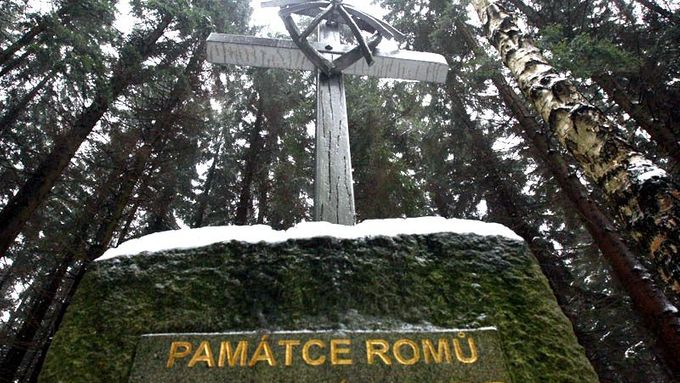
Hodonín u Kunštátu - Michael Kocáb, minister without portfolio in charge of human rights, is starting to fulfill one of the promises he made to the public when he assumed his new position.
On Wednesday morning he drove to Hodonín u Kunštátu in order to negotiate the purchase of a recreational facility that sits on a property that housed a Romani concentration camp between the years 1940 and 1944.
According to information available to Aktuálně.cz, they are reaching an agreement. Alena Vojtová, the owner of the building complex, has agreed to sell.
"I myself told the government that I was willing to sell a large section of the complex," she told Aktuálně.cz. "I am prepared to sell. Today [Wednesday] I should find out what the government decided."
"Both sides want to do this," said Kocáb's secretary Petr Koubek. "We are counting on returning to Prague with a proposal that we can hand over to the government."
The minister's priority
If the minister leaves with an agreement, it can be expected that the government will discuss the purchase at its next session. "It is a big priority," said Koubek.
Mirek Topolánek's cabinet should then approve a project that would resolve the issue of what will happen with the property that used to house the concentration camp.
"There should be an education centre there, focusing on Romani culture. It would cost some tens of millions of crowns. But it is not certain yet that we will be able to get the money," said Koubek.
Cottages and a pig farm
The Human Rights and National Minorities government office considers resolving the situation in Hodonín as much of a priority as turning the site of a former concentration camp in Lety near Písek into a more dignified space.
While in Hodonín in Kunštát a recreational complex stands on the site where hundreds of people suffered, in Lety, the site houses a pig farm. The situation in Kunštát is easier to resolve. The management of the pig farm in Lety, on the other hand, is asking for CZK 300 million.
With regards to Hodonín, Koubek says: "We expect that we'll be able to agree on a sum of CZK 20 million. "We have already held talks on where to get this money. But for now we will not reveal the details.
For the uncooperative
The prison camp was established in 1939 by Czechoslovakia's democratically-elected government before the nazi occupation.
Initially, the camp was to serve as a correctional facility for uncooperative members of the society. In 1942, however, it was converted into a concentration camp, and 1,396 people passed through it. Only Roma were deported there, and over the course of two years, 871 of them ended up in the gas chambers of Auschwitz.
Another 207 people died right in the camp, after contracting typhus, tuberculosis or pneumonia. Half of them are buried in a nearby wood.
Willing to sell
The area of the concentration camp eventually became the site of the Žalov recreational facility. Alena Vojtová, its current owner, bought the complex in the early 1990s.
There is a swimming pool here, a restaurant and cottages, where guests can stay overnight. Right now the facility is empty, and the restaurant is closed. "My business suffered as a result of statements made by Romani activists," says Vojtová. "They said people were doing recreational activities in the churches of their fellow citizens."
Over the last 15 years, the government had not offered the owner conditions for sale that she was willing to accept. That is why she last year proposed her own conditions for selling.
"We want to continue operating a pool in a part of the complex," says Vojtová. She refuses to reveal the price she is asking, but says, "I certainly don't want to the government."
Adapted and republished by Prague Daily Monitor.
